Bees and Ants! (and birds!) and a bit about pesticides
Bees and ants have a lot in common. Both are super organisms. They work together in their own colony to achieve mutually beneficial tasks.
The socialists of nature.
They communicate. When one needs help she gets others to give her a hand.
If one finds something useful she let’s the other ants/bees know about it so it can be beneficial to all.
Unfortunately they don’t just work separately.
At the allotment we have a main bee hive and have started the job of making an artificial swarm into a separate box.
This allows the colony to expand so they don’t make a real swarm and leave us. Bee keepers do this in various ways.
The main hive is doing well. We added a honey box recently to help them expand for the summer too. Bees need space.
In their hive of activity they have a significant work ethic and while there is comb to be made and larvae to care for they are frenzied in their work and busy as a bee.
But then there’s the ants.
Meanwhile, they’ve been waiting to set up their green fly cows on our vegetables. They farm greenfly to support their own colony work. They too work together to raise their larvae.
All the super organisms doing their thing.
But then the ants find the hive.
But
Those ants…..
They like honey.
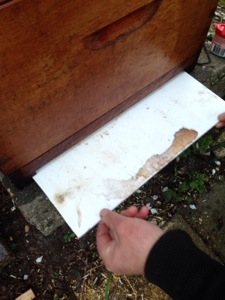
Ants on the varroa board under the hive
Now here’s the thing, what would you do?
The bees are a good super organism. Are the ants a bad one?
There are a few options.
The gardening industry these days is very straightforward.
(I wonder here if humans are good or bad super organisms? )
Poison the ants!
I hear them shout! Protect the honey!
Hmm but what would the poison do to the bees?
The industry has a new weapon. It’s called neonicotinoid.
It’s been modified to be 7000 times stronger than the 1950’s nasty DDT.
The industry have found it so effective they are really pleased. It might solve problems with world food needs.
Here’s how it works.
You coat the seed with it and it makes the entire plant toxic to insects.
It can also penetrate the soil around the seed making other things in the locality that might be growing toxic too.
This is great cos there’s no need to spray loads of Nasty chemicals into the air to be blown away or washed all over the place. So much more convenient!
Hang on! didn’t I just say the entire plant is now toxic?
But what about all the cuddly bugs, the ones we like?
The positive ones that don’t destroy crops. The cute ones that macro photographers love?
Bees, butterflies, dragonflies, ladybirds, spiders, mayflies, pond skaters, lacewings and all the other things we study with the kids at school with magnifying glasses and enthusiasm?
What about them?
Well the industry claim that this stuff isn’t harmful to those creatures. Not really sure how it discriminates.
What I do know is a single maize seed, coated in nasty neonicotinoid has enough potency to wipe out five bee hives. That’s 200,000 bees.
And what about the birds?
(They eat bugs don’t they?
They may not know the bugs are laced with poison!)
So that means songbirds, like thrushes and domestic birds like chickens!
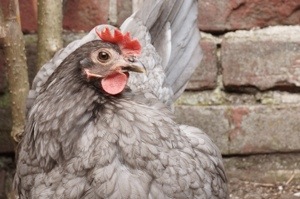
She’s not too pleased to hear that!
(I direct you to an apocalyptic work Silent Spring in which Rachel Carson explains what might happen if there were no birds!)
Now equally scary for me, is that the industry, in its wisdom, can coat the seeds and bulbs we buy with this stuff without us knowing!
So before I lose you. What about those ants?
We’ve used a simple solution.
Cinnamon
Ants don’t like it!
We’ve sprinkled it all over the varroa board under our hive and we’ve already seen a reduction in the number of ants…
…. I’ll let you know if it improves the problem.
Meanwhile before you get frustrated and consider resorting to chemicals against bugs, try something less nasty please.

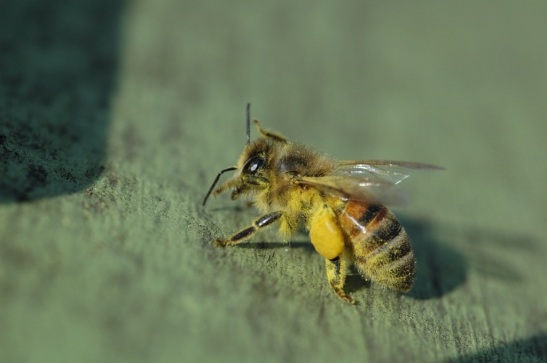
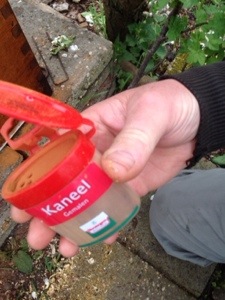
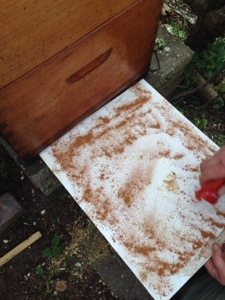



Reblogged this on Linda's wildlife garden and commented:
Lovely post Liz
LikeLiked by 1 person
Such a simple and non-toxic solution. Hope it works!
Ants are crazy. I love cinnamon 😉
LikeLiked by 1 person
Hope so. Or maybe they’ll make Danish pastries!
LikeLike
Yum 😉
LikeLiked by 1 person
Great post! My yard is chemical free. I did have problems with carpenter ants getting into my sugar feeder, so I put baby oil on the shepherd’s hook. They won’t cross it.
LikeLiked by 1 person
That’s good to know. Might try that too.
LikeLike
The bee situation is very bad so I hope that your method proves usable.
LikeLiked by 1 person
30% lost across Europe last year and the year before but this year with the mild weather populations are already improving slightly.
LikeLike
Great info…. Be careful putting oil on anything that a bird might hit and get a petroleum product on their feathers
LikeLiked by 1 person
We’d be very careful. Good advice : )
LikeLike
I know you would not do that..I was thinking of another comment left about that. We use a cup with water to keep ants from getting to the hummingbird feeder, but some grease the pole and any of those products are toxic to wildlife. Some people grease the poles to watch the squirrels get it on their paws and slip and post funny videos of it. But it isn’t funny to the wildlife. People don’t think sometimes…
LikeLike
That’s terrible!
LikeLike
Yes it is and they eat it to get if off their paws and fur.
LikeLike
In my view people don’t think most of the time….. Unfortunately.
LikeLike
I have an ant problem too on my raised bed, but didn’t know how to solve it. I’m trying to be organic so chemicals are out for me too but I like the sound of using cinamon and will also try this. My sister-in-law told me about using garlic (and other strong veg such as onion and chilli) steeped in water as a spray to ward off mice and other unwanteds on the veg.
LikeLiked by 1 person
It is tricky but worth trying. I might see if garlic will help us too. Mice apparently don’t like mint. Essential oil may help with that one.
LikeLike
another great – and very informative post. Thanks!
LikeLiked by 1 person
Thanks very much. I went back and read it again. Good of you to stop by : )
LikeLike